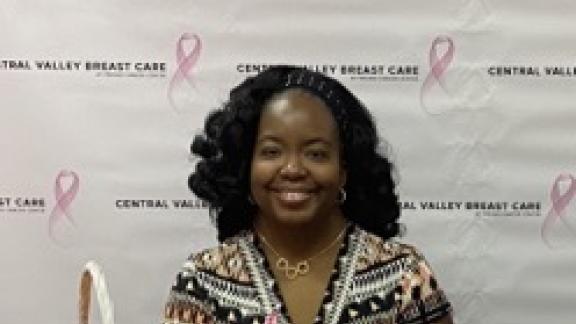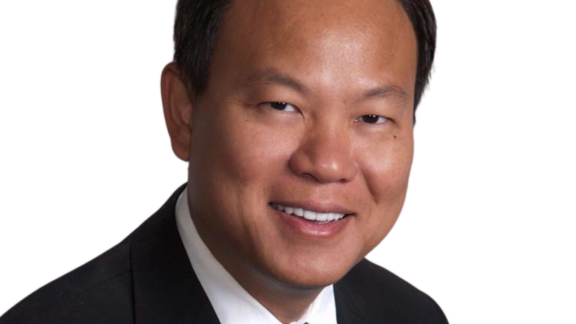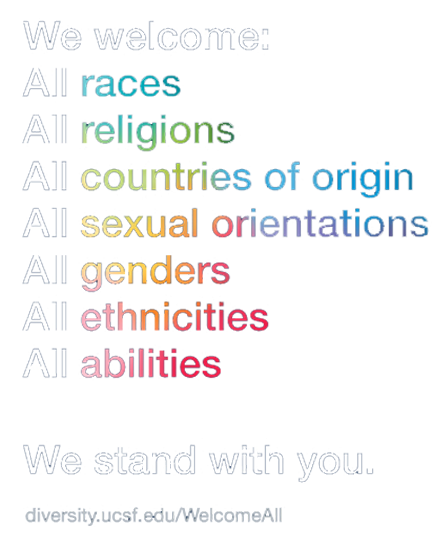Fresno County, UCSF Fresno Partner to Provide Mobile Rural Health Care
Agricultural workers lined up inside the equipment barn at Terranova Ranch in southwest Fresno County on a cold February morning for staff of UCSF Fresno Mobile Health and Learning (Mobile HeaL) to take blood pressures, screen for diabetes and give flu and COVID-19 shots.
More than 200 people were screened at the launch of the Fresno County Department of Public Health’s Rural Mobile Health Program, an initiative to make health care more accessible and equitable for people living in rural areas of Fresno County.
An $8 million allocation of federal American Rescue Plan Act (ARPA) funds, approved by the Fresno County Board of Supervisors, allows the county to contract for two years with UCSF Fresno Mobile HeaL, Saint Agnes Medical Center, Fresno State’s Mobile Health Unit and others for medical services at no cost to agricultural workers and rural residents. The county also is contracting for Community Health Workers (CHWs) to assist in providing health education in a culturally and linguistically sensitive manner and to help link individuals without a primary care home to a nearby physician or clinic.
Partnering with the Fresno County Department of Public Health (FCDPH) is a good match for UCSF Fresno, which has been taking health services into communities since 2018. Kenny Banh, an emergency physician and UCSF Fresno assistant dean for Undergraduate Medical Education, started Mobile HeaL five years ago to provide care outside hospital and clinic walls. From its beginnings, Mobile HeaL has provided vaccinations, urgent care and health screenings to patients while providing learning opportunities for medical and pre-health students under the guidance of residents and faculty physicians.
“We are very happy to partner with Fresno County to provide mobile health care services to agricultural workers in our rural communities,” said Dr. Banh, UCSF Fresno Mobile HeaL director. “The No. 1 driver of business in the San Joaquin Valley is agriculture and we should be providing health care services to our essential food and ag workers. We can’t operate our Valley without them.”
Terranova Ranch General Manager Don J. Cameron said, “we’re just really excited that UCSF Fresno is a partner in this program. We look at them as a strong partner in the rural community and that they care enough to be out here and work with us to provide health care to those who usually aren’t able to get the care that they need.”
A UC Merced Farmworker Health Study, released in February, highlighted the state of farmworker health. Of 1,200 farmworkers surveyed for the study, 49% reported being without health insurance. Only 43% of the farmworkers reported having visited a doctor’s office or clinic in the past year, and between one third and one-half reported having at least one chronic health condition (diabetes 20% and hypertension 19%).
County health officials recognized a need to develop a preventive health program two years ago during the pandemic when it held rural COVID-19 vaccine clinics for agricultural workers. “A lot of patients had chronic diseases that they hadn’t managed or were unaware of, especially Type 2 diabetes and hypertension. And this was another reminder of why we need to do a better job of getting out in the community, getting people screened, getting these people established into a medical home so we can find these things sooner before it’s a crisis and they go into our hospitals,” said FCDPH Director David Luchini at the Rural Mobile Health Program launch.
Fresno County Supervisor Brian Pacheco, (District 1), is proud that Fresno County and local health care partners are again on the cutting edge in providing health services for farmworkers and rural residents. “This program is similar to two years ago when Fresno County took the lead in working with our agricultural and health care partners in getting rural farmworkers some of the earliest COVID-19 vaccinations in California,” he said. “Our farmworker model was duplicated by many other counties as I suspect this Rural Mobile Health model will be, too.”
Terranova Ranch was among agricultural employers in Fresno County to host vaccine clinics during the pandemic. All its employees voluntarily were vaccinated, a feat that drew the attention of Gov. Gavin Newsom, Cameron said, and it came as little surprise that his employees embraced the Rural Mobile Health Program in February. “It just shows how strong the need is for health care in the rural community and how lacking it is for (agricultural workers) to take the time to come over and be a part of this to get screened.”
Some of the people in line for health screenings at the ranch divulged they had not been to a doctor’s office in years, said Trinidad Solis, MD, Fresno County deputy public health officer. “And many expressed their gratitude,” she said. “It just shows that meeting the community where they are at is an effective approach to health care.”
 During the February launch event, Dr. Banh shared an interaction he had had with an agricultural worker. “I took the blood pressure of a man, who was probably in his 30s. His blood pressure was pretty high, and I asked him, ‘has your blood pressure been high in the past?’ He said, ‘I don’t know. I’ve never gone to the doctor. I’ve never had my blood pressure checked.’” And Dr. Banh added, “if I’m seeing this farmworker five or 10 years later with a stroke or a heart attack, we’ve already lost the game.”
During the February launch event, Dr. Banh shared an interaction he had had with an agricultural worker. “I took the blood pressure of a man, who was probably in his 30s. His blood pressure was pretty high, and I asked him, ‘has your blood pressure been high in the past?’ He said, ‘I don’t know. I’ve never gone to the doctor. I’ve never had my blood pressure checked.’” And Dr. Banh added, “if I’m seeing this farmworker five or 10 years later with a stroke or a heart attack, we’ve already lost the game.”
Hearing of Dr. Banh’s encounter with the farmworker at his ranch, Cameron said it made him realize how vitally important health care accessibility is in rural Fresno County. “We’re probably saving lives by doing this.”
By the time many farmworkers seek health care, they are seriously ill and need to go to the hospital for emergency care, said Supervisor Buddy Mendes, (District 4). The Rural Mobile Health Program is beneficial to everyone living in Fresno County because farmworkers’ illnesses can be diagnosed early, reducing the need for visits to overwhelmed emergency departments, he said. “If you have to go to the ER because of an accident or an emergency and it’s not completely life-threatening, right now you have to wait in line and the line could be six hours long or 10 hours long.”
Agricultural workers forego seeing a doctor for many reasons, lack of insurance, unreliable or no transportation to get to a clinic, and potential language barriers. By providing health screenings and refilling necessary prescriptions for agricultural workers, UCSF Fresno is working to be a bridge – an intermediary – until a federally qualified health center (FHCQ), a rural health clinic or a primary care physician’s office can be found to take over and provide continuing care, Dr. Banh said.
“UCSF Fresno has really been a great partner to help us with vaccines in the community and educate the population,” said Dr. Solis, the deputy health officer. “And the importance of UCSF is to be there to bridge individuals to a primary care doctor. We are also addressing the social needs with our partnership with FCHIP HOPE (Pathways Community HUB),” she said. The HOPE HUB provides Community Health Workers to be at any Rural Mobile Health Program event.
The lack of access to primary care for farmworkers is a health disparity that is familiar to Liliana Rosales Garcia, a UCSF Fresno Mobile HeaL staff member who helped screen at the Rural Mobile Health Program at Terranova Ranch. Rosales Garcia, 23, of Fresno, is a medical assistant who earned a degree in biology at UCLA and has plans to apply to medical school. But growing up, the daughter of farmworkers, she watched her parents go without health care because they did not have health insurance.
“When it does come to even having just access to something like free blood glucose or checking blood pressure, my mom specifically gets very excited. And that’s why when I do (provide health screenings) for other people who come from the same background, I feel like I am giving back to them because I see my parents not being able to have health care.”
The Rural Mobile Health Program will make a difference for farmworkers in Fresno County, Rosales Garcia said. “It is a community that never really has access to health care and a community that will usually not seek health care because they don’t have insurance, so being able to provide them with free access, I think it will teach them more about their health and also motivate them to eventually take care of themselves, too.”
For more information about the Fresno County Rural Mobile Health Program or to schedule an event, call 559-600-4063 or visit the Fresno County Department of Public Health website.




